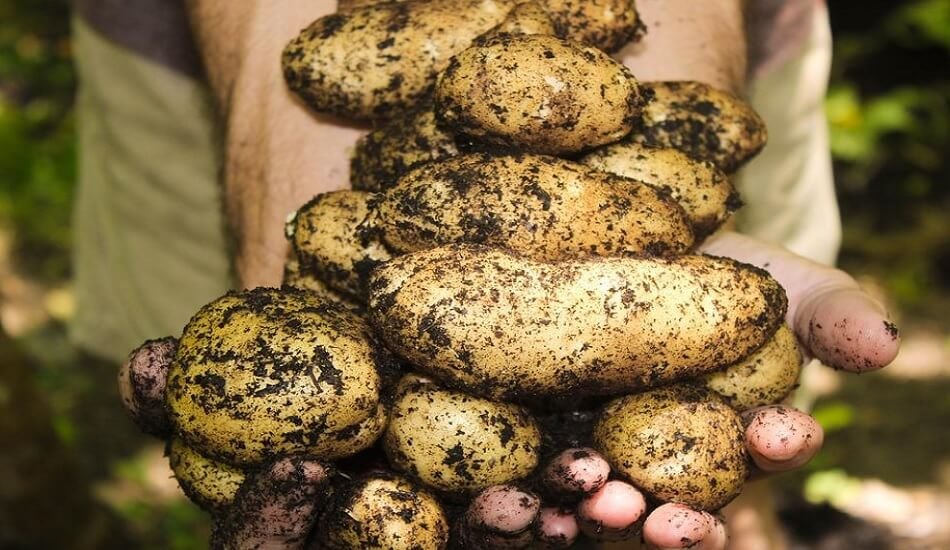NGO to strengthen Tribal farmers in organic farming with buy back plan.
Alswamitra Botanicals LLP, a Bengaluru-based start-up, has started a project in tribal hamlets in South India to improve the yield and quality of organic crops like turmeric and millets by giving seeds from an NGO to farmers and then buying them back to give to other farmers.
But the company also wants the growers to start a farmer producers organization (FPO), which will give them more bargaining power and give them a chance to learn from each other.
Alswamitra has joined NGO Sahaja Seeds, the first farmer-owned organic seed company in the country, to do this. The NGO works to bring back native seeds, and it has tens of thousands of seeds in a bank. It has the seeds of more than 29,000 different kinds of rice, for example.
Also Read | Rajiv Gandhi Centre for Biotechnology started big project to help tribal communities.
FAO outline
Alswamitra, which is run for free by a few corporate employees, gives these seeds to people in Andhra Pradesh, Telangana, Karnataka, Tamil Nadu, and the Andaman and Nicobar Islands.
Neil Thomas, who is in charge of Alswamitra, says that the seeds are given out after a proper contract is made with them. The contract is based on the model that the Food and Agriculture Organization of the United Nations came up with.
‘Growers are free to decide what the price will be. Growers can pay us in cash or in seeds for the seeds we give them ahead of time. Since the seeds are a loan, they only need to think about paying back the money when they harvest,’ he said.
For giving the seeds ahead of time, no interest is charged. ‘But we’d rather get the money back in seeds,’ said the head of the company.
Dual advantages
The seeds that have been grown and sent back are then given to other farmers who want to work with the company. ‘This helps in two ways. One, organic food is made that is all of the same quality. ‘The quality stays the same as the seeds are given to other farmers who want them,’ he said.
Second, the varieties chosen are ones that produce a lot of food. So, more farmers get the chance to grow organic varieties of millet crops that give high yields or turmeric crops that give high yields.
Farmers will have to form the FPO before they can get the seeds. In fact, the Alswamitra initiative, which started 18 years ago, is a tribal farm project that was started by the doctor couple George and Lalitha Regi, who worked in Sittilingi Valley in Dharmapuri district, Tamil Nadu, in the 1990s. In 1993, they started the Tribal Health Initiative.
By 2009, the movement had led to the creation of the Sittlingi Organic Farmers’ Association (SOFA), whose members agreed to grow only organic food and eat at least half of what they grew.
Also Read | 10 lakh tribal families got MSP worth Rs 4,000 crore for the first time.
Ingenious strategy
‘As a result, farmers grew traditional crops like millets, which need less water and have been eaten for a long time. Turmeric was grown as a cash crop to make money, and the extra crop that wasn’t eaten by the farmer’s family was sold. This was a smart move because the traditional farmers were able to make enough food and money from their work,’ said Thomas.
It was a welcome change for the tribal farmers, who had been struggling with a low-yielding type of turmeric. Alswamitra bought the Pratibha turmeric seed and gave it to the farmers in the case of turmeric.
‘They could return the seeds or sell them to a private company. The private company paid more for the turmeric because it had more curcumin and curcumin oil,’ the head of Alswamitra said.
Marketing directly
Then, in November 2015, the Sittilingi Valley Organic Farmers Producer Company Limited was set up. Women from women’s entrepreneurship groups in the valley made up the majority of the company’s shareholders. The company was set up to handle the growing sales and get their products out there.
‘Our project helps rural women who want to start their own businesses and small farmers. ‘We’ve been successful because we set up FPOs and then looked at how the farmers were growing,’ he said.
Alswamitra also wants the farmers to be in charge of selling their own crops. ‘They don’t have a business that sells their goods. They don’t have direct access to stores, so they usually go through middlemen.’
The ‘Grain Forest’
The Alswamitra comes into play at this point. ‘We buy the fruit and vegetables and pay the farmers 25% more for them. We then sell them on digital platforms like Amazon, Flipkart, etc. We had started a new plan to sell these items under the brand name Grain Forest,’ Thomas said.
The brand brings together 12,000 farmers and people who care about their health, the environment, and social issues. ‘The brand has also helped the company give tribal and local women jobs and ways to make money by processing and packing.’ he said.
Also Read | Thousands of tribal farmers on streets, demanding title deeds for forest land.
Alswamitra is a limited liability partnership (LLP) company that also makes sure that 40% of the profit from selling organic food under the Grain Forest brand goes back to the tribal farming community.
The company decided to be an LLP firm because it wanted to be long-lasting and run like a corporate firm. ‘We’re getting trade certification right now. It is also trying to register as a B Corp, which is a way for US companies to recognize non-profits. Thomas said, ‘Being a B Corp is worth a lot more in Europe and the US than it is in the US.’


















Add Comment